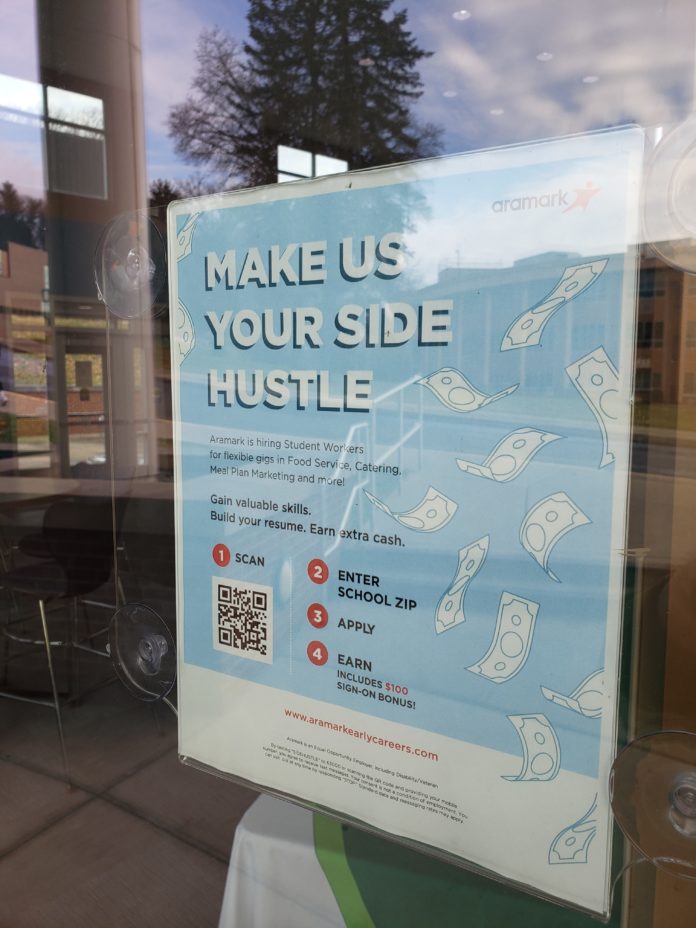A wage increase for specific jobs on campus has started conversations about the necessity for an increase for all student workers.
The Slippery Rock Student Government Association (SRSGA) announced at their previous formal meeting that the campus food provider, Aramark, has raised their starting wages to $11 an hour, which is a competitive rate compared to what is being offered by big corporations such as Walmart and Target located in Butler. Other positions on campus, such as Pride Guides and certain student jobs in admissions, have followed suit with a raise to a minimum of $10 an hour.
“The truth of the matter is, we have more student jobs than students are willing to take right now,” SRU President William Behre said at the SRSGA formal meeting on Nov. 1 about the topic of possible cuts to students in the work-study program as part of the campus-wide budget balancing.
Gabriel Stiles, college of education senator and chair of the ad-hoc food service committee, said during a meeting with Aramark executives expressed they were experiencing the same issue with their staffing in the dining halls.
“Throughout the discussion, Aramark traced all their problems back to worker shortages, all without a plan to solve this,” Stiles said.
Aramark at first raised their wage to $9.50 an hour, per Stiles and SRSGA Vice President of Academic Affairs Grant Warmbein’s suggestion that be the new minimum. After the formation of the ad-hoc food service committee, Stiles stated that they created a thorough list of the necessary changes that needed to be made, one being a rise in wages to $12 an hour.
“During our first committee meeting, Aramark executives admitted raising the wage to $9.50 an hour ‘did bring in some new people’ but ‘not as much as we were hoping,’” Stiles said. “Throughout the meeting, our committee used that momentum and discussed how while $9.50 is an improvement it still does not compare to jobs off-campus paying an average of $12/hour.
Lakin Draksler, second-year graduate student and graduate senator, made a speech at a previous formal meeting during the open forum about the necessity for an increase for graduate assistants, as well.
“The standard pay is typically $7.25 (an hour), the (Pennsylvania) minimum wage,” Draksler said. “But select offices are now paying up to $10.50 (an hour) for undergraduate student employees.
“This is an amazing movement, and I fully support this fight to continue to raise student wages… we ask only moving forward that we can also be actively included in it.”
Some graduate assistants can receive various benefits with their positions, including professional development funding, housing for graduate assistants in residence halls, as well as a tuition waver, but this does not happen across the board for all graduate assistants. Draksler continued saying although these benefits are greatly appreciated, the funds that they receive can’t be used for monthly expenses, such as rent, utilities, and groceries.
“Graduate students at Slippery Rock University make an income of $7.62 (an hour) for 17.5 hours a week,” Draksler said. “Perks are not the same as wages… saving is not the same as making,” Draksler said.
SRSGA President Mia Graziani explained how the university is currently working on a “tiered system” for student workers’ pay. The administration will be looking into the duties and responsibilities of each position on campus to determine which tier of pay they would fall under. Graziani said it was still an ongoing process, but she looks forward to continuing this conversation next semester.








